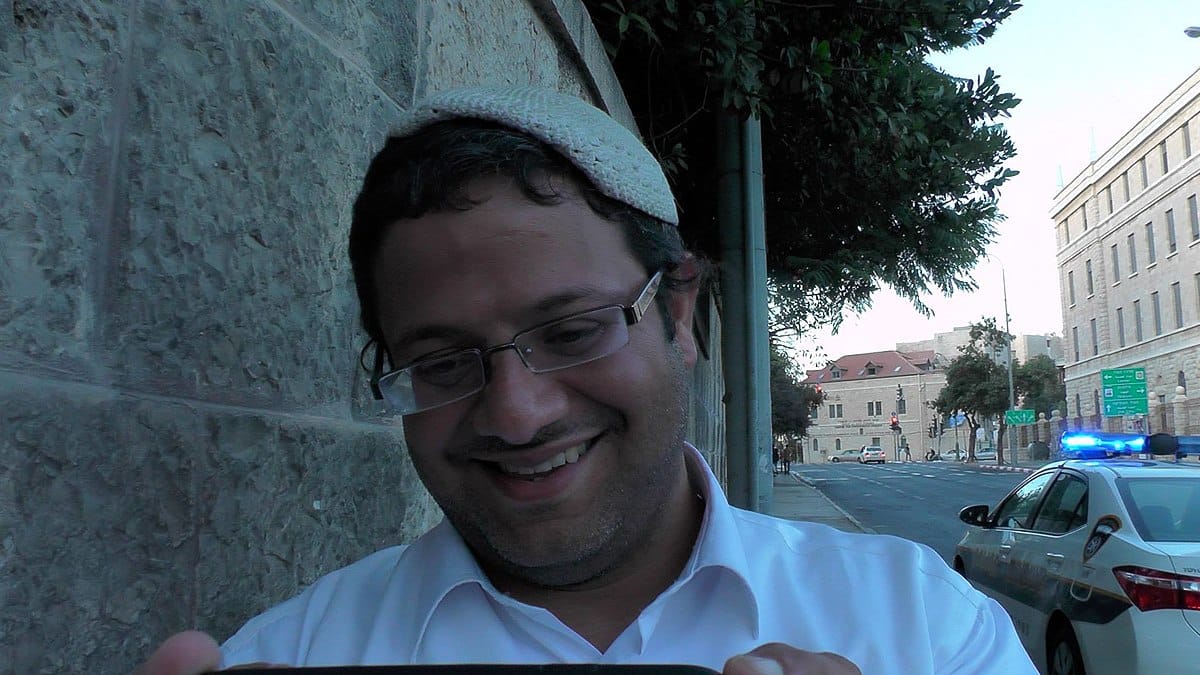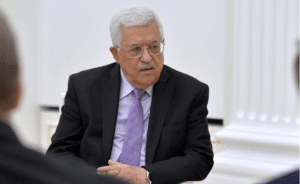Itamar Ben-Gvir in 2014.
Last week, Benjamin was sworn in as prime minister by Israeli parliament. A majority of parliamentarians voted for Netanyahu’s new cabinet, which is Israel’s most far-right, religiously conservative government in history.
Corruption charges
His electoral victory in the parliamentary elections in November allowed Netanyahu to return to power, despite being on trial for corruption. Netanyahu was prime minister for 12 years between 2009 and 2021. To keep Netanyahu from government, a coalition with politicians across the political spectrum was formed, in March 2021, under the leadership of centrist Yair Lapid and former protégé of Netanyahu, Naftali Bennett. The coalition proved impossible to keep together and broke down in June 2022, resulting in the latest elections.
The main reason for forming an alliance to keep Netanyahu from power were the charges for corruption and fraud he faces. Netanyahu has denied the allegations of bribery, fraud and breach of trust by him and close political allies within his inner circle. Netanyahu’s bloc has been vilifying the judiciary, painting it as an enemy. This trend could result in a battle between Netanyahu’s coalition and the judiciary, as Netanyahu returns to power.
Ultranationalist allies
Netanyahu’s ultranationalist allies were long considered to be a far-right, fringe movement. Its leader, Itamar Ben-Gvir is a settler in Kiryat Aba, one of the most radical settlements in the occupied West Bank. Ben-Gvir will serve as National Security Minister in the new cabinet. This is a new post, that is in charge of police.
Ben-Gvir has been convicted of incitement to racism, destroying property, and supporting a “terror” organisation (the banned Kach party). Among other things, he is controversial for having a picture in his office of Baruch Goldstein, an Israeli American who killed 29 Palestinians in the Ibrahimi Mosque massacre in Hebron in 1994.
Al-Aqsa
On Tuesday, Ben-Gvir entered the compound of the al-Aqsa Mosque in occupied East Jerusalem. Hamas called Ben-Gvir’s entering a “deliberate provocation”. The al-Aqsa Mosque compound is believed to be holy by Muslims and is a symbol of Palestinian nationalism. Visits from non-Muslims are only allowed at designated times. There has been a rise in ultranationalist Jews entering the compound of the al-Aqsa Mosque. In addition, the compound has been stormed by Israeli forces. This has led to Palestinian anger, since the site is one of the only national symbols the Palestinians still hold some control over.
Netanyahu’s choice to form an alliance between his Likud party and Ben Gvir’s nationalist bloc will undoubtedly influence the policies of the new cabinet. It has already articulated that the expansion of settlements in the West Bank is a top priority. It stated that “the Jewish people have an exclusive right on all the land” between the Jordan River and the Mediterranean Sea.
“Democracy in danger”
On Saturday, thousands of Israelis gathered in Tel Aviv to protest the new cabinet. The demonstrators claimed Netanyahu’s government threatened democratic values, articulating slogans such as “Democracy in danger,” and “Together against fascism and apartheid”.
The 4.5 million Palestinians living under Israeli military rule or blockade in the occupied West Bank East Jerusalem, and the besieged Gaza Strip are not accounted for in Israeli elections. However, they will experience the effects of the election results, with an extreme right, ultranationalist coalition coming into power.
Sources: Al Jazeera 1, Al Jazeera 2, Al Jazeera 3, Al Jazeera 4, Al Jazeera 5, Al Jazeera 6, Al Jazeera 7
Photo: Wikimedia Commons



